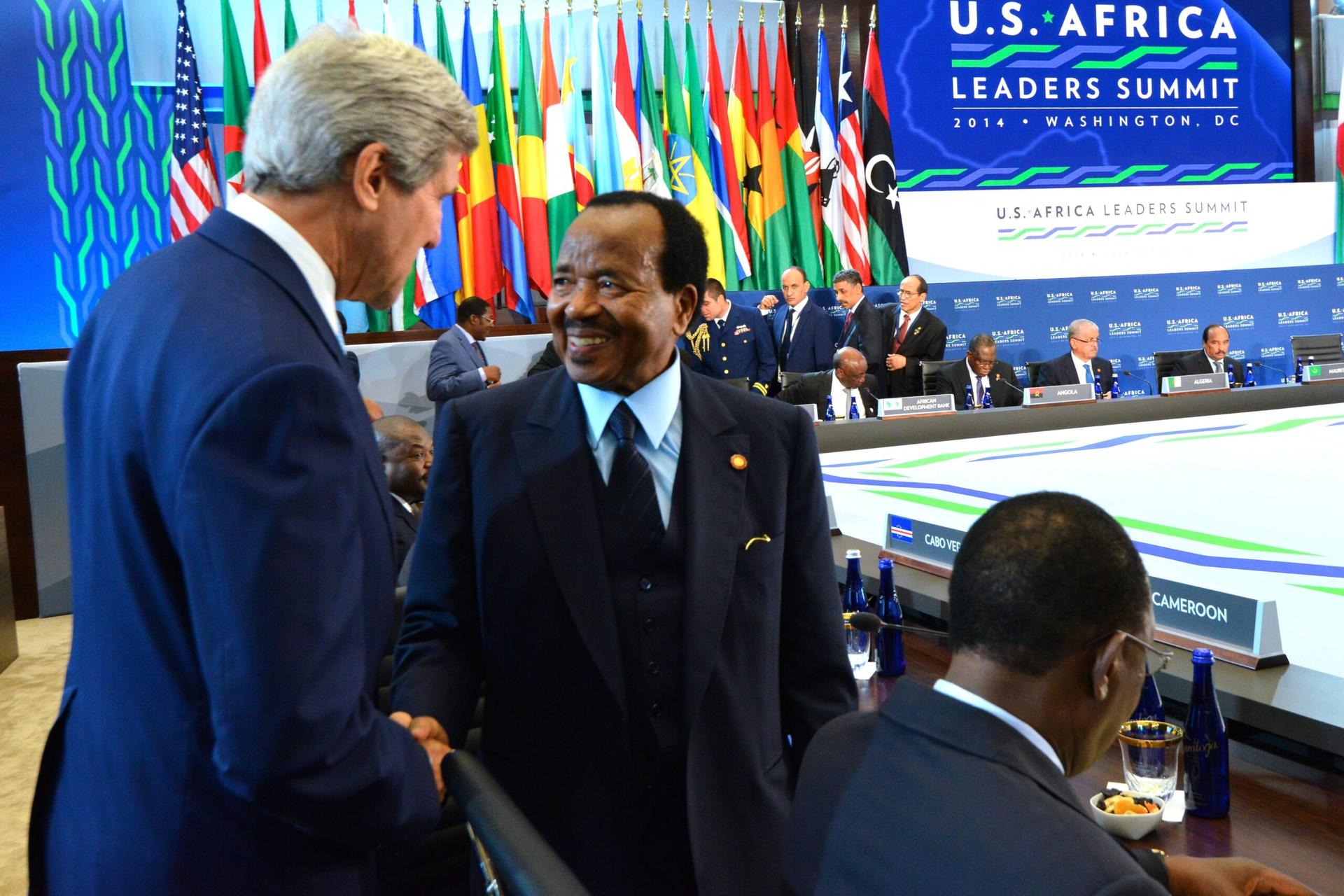YAOUNDÉ, Cameroon – A Catholic canon lawyer is urging the bishops of Cameroon to publicly oppose President Paul Biya’s bid for an 8th term, just a day after the 92-year-old leader submitted his candidacy papers on July 17.
In an open letter to the African country’s bishops’ conference, Nchumbonga George Lekelefac, a Cameroonian Canon lawyer and advocate with the International League for the Defense of Priests’ Rights and Religious (LIDDPRRECR), implored them to follow the of their counterparts in the Democratic Republic of Congo, where their “outspoken criticism of President Joseph Kabila’s extended rule led to significant political reform.”
Lekelefac’s appeal directly confronts the legacy of Biya’s 43-year rule, which he sums up as years of economic stagnation, and social rot.
“Cameroon is in distress. The prolonged rule of President Biya has led to economic stagnation, political repression, human rights abuses, and the unresolved Anglophone Crisis, which has claimed countless lives and displaced millions, “the lawyer writes.
For over eight years, Cameroon’s English-speaking regions have been caught in the throes of a separatist conflict that has left a conservative toll of over 6.500 deaths, and more than a million forced to flee from their homes.
Entire communities have been destroyed, schools and hospitals razed, and between 700,000 to 800,000 children forced out of school according to UNICEF figures from 2022.
“The silence of many among you [the Bishops] in the face of this crisis is deeply concerning,” Lekelefac writes.
“As the late Cardinal Christian Tumi courageously spoke truth to power, we urge you to emulate his legacy,” he says.
Noting that Catholic bishops worldwide wield significant moral authority, the canon lawyer said he believes such power can be used to trigger change in countries in turmoil.
“In Kenya, bishops have consistently advocated for good governance, holding leaders accountable. In Papua New Guinea, they have denounced governmental excesses during times of public distress. Similarly, the Congolese Episcopal Conference’s outspoken criticism of President Joseph Kabila’s extended rule led to significant political reform. In contrast, the silence of many Cameroonian bishops regarding President Biya’s 42-year tenure raises questions about the NECC’s commitment to justice, “he writes.
He notes the paradox of wealth and want, drawing a sharp contrast between the country’s abundant natural resources and the excruciating poverty under which Cameroonians live.
“Cameroon, blessed with abundant resources, sees over half its population in poverty, its infrastructure crumbling, and its democratic institutions hollowed out,” Lekelefac writes.
He complains about “economic stagnation” despite Cameroon being rich in oil, gas, timber, and fertile land.” And that stagnation has meant that “over 55 percent of Cameroonians live in poverty, with 37.7 percent in severe deprivation.”
“Infrastructure, including roads and railways, lie in disrepair,” he notes.
And for a president who came to power 43 years ago promising democratization and liberalization to the Cameroonian people, the canon lawyer has little kindness for the frail Cameroonian leader.
“Biya’s regime has curtailed political freedoms, jailed opponents, silenced activists, and allowed electoral irregularities,” he writes.
Lekelefac warns the Cameroon clergy against the temptation of choosing “diplomatic neutrality over pastoral responsibility,” citing a recent meeting between the Apostolic Nuncio to Cameroon, Archbishop José Avelino Bettencourt, and President Paul Biya.
He faults the Apostolic Nuncio for failing to publicly oppose Biya’s candidacy, and notes that such conduct “suggests an alignment with diplomatic neutrality over pastoral responsibility.”
“As a representative of the Holy See, the Nuncio should advocate for the vulnerable and challenge leadership that perpetuates suffering. His silence is a missed opportunity to uphold the Church’s mission as a voice for the oppressed,” Lekelefac says.
While the National Episcopal Conference has so far failed to directly call on the President to not seek re-election, they however issued a Pastoral letter on the 2025 general election that wasn’t friendly to the incumbent.
One of the criteria they proposed for the next resident is someone who is able to visit all parts of the country-a condition Biya for all his 43 years in popwer didn’t meet, and given his advanced years, cannot meet anymore.
Some individual bishops have however voiced opposition to an 8th Biya term in office.
Archbishop Kleda of the Douala Archdiocese said an 8th term for the President was “unrealistic.”
Bishop Emmanuel Abbo of Ngaoundere said the Biya regime had inflicted so much pain on Cameroonians and curiously suppressed the people’s right to complain.
Bishop Yaouda Hiurgo of Yagoua said the people had reached the limits of their suffering to the extent that even the devil cannot inflict greater pain.
“it would be preferable for the devil to take over Cameroon, and we see what happens next,” he said recently.
Still, Biya’s supporters insist he remains the right man for the occasion, citing his long years of experience at the helm of the state, and describing him as “our champion.”
Biya in announcing his candidature said “the best is yet to come,” suggesting he still has something more to offer.














